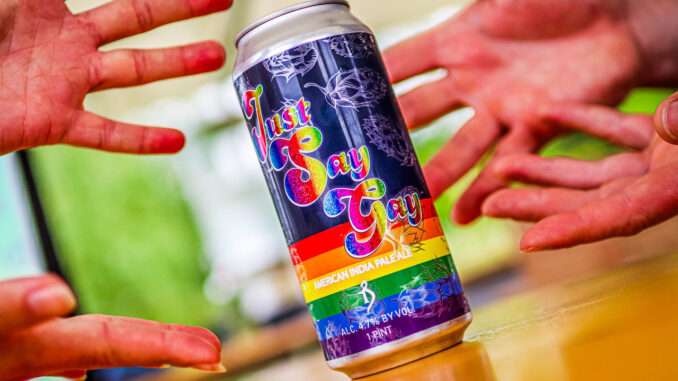
[ad_1]
When Vermonters stand in line to buy an IPA, that’s saying something. As the state with the most breweries per capita—more than 15 per 100,000 adult residents—Vermont is a craft beer wonderland, and Heady Topper, the unpasteurized, unfiltered double IPA from Alchemist Brewery, its biggest attraction. Bernie Sanders was photographed holding one of its distinctive black and white cans, labeled in vintage concert-poster style, on his grassroots campaign trail for the 2016 Democratic presidential nomination.
Alchemist brewmaster and cofounder John Kimmich (along with his wife, Jen) is widely considered the pioneer of hop-heavy, hazy IPA, now known as New England style, and has never filtered a beer since opening in 2003. That was not a typical practice at a time when most craft breweries were filtering for clarity. Nor was packaging an unfiltered IPA in a can, let alone a 16-ounce can. Heady Topper was the first.
“Other brewers told us we were making a mistake,” says Jen. “But to reduce packaging material, do something unique—one full pint in one can—and set a premium price, we knew this was the format to go with. Judging by the number of 16-ounce 4-packs in coolers these days, I think we got that part right.”
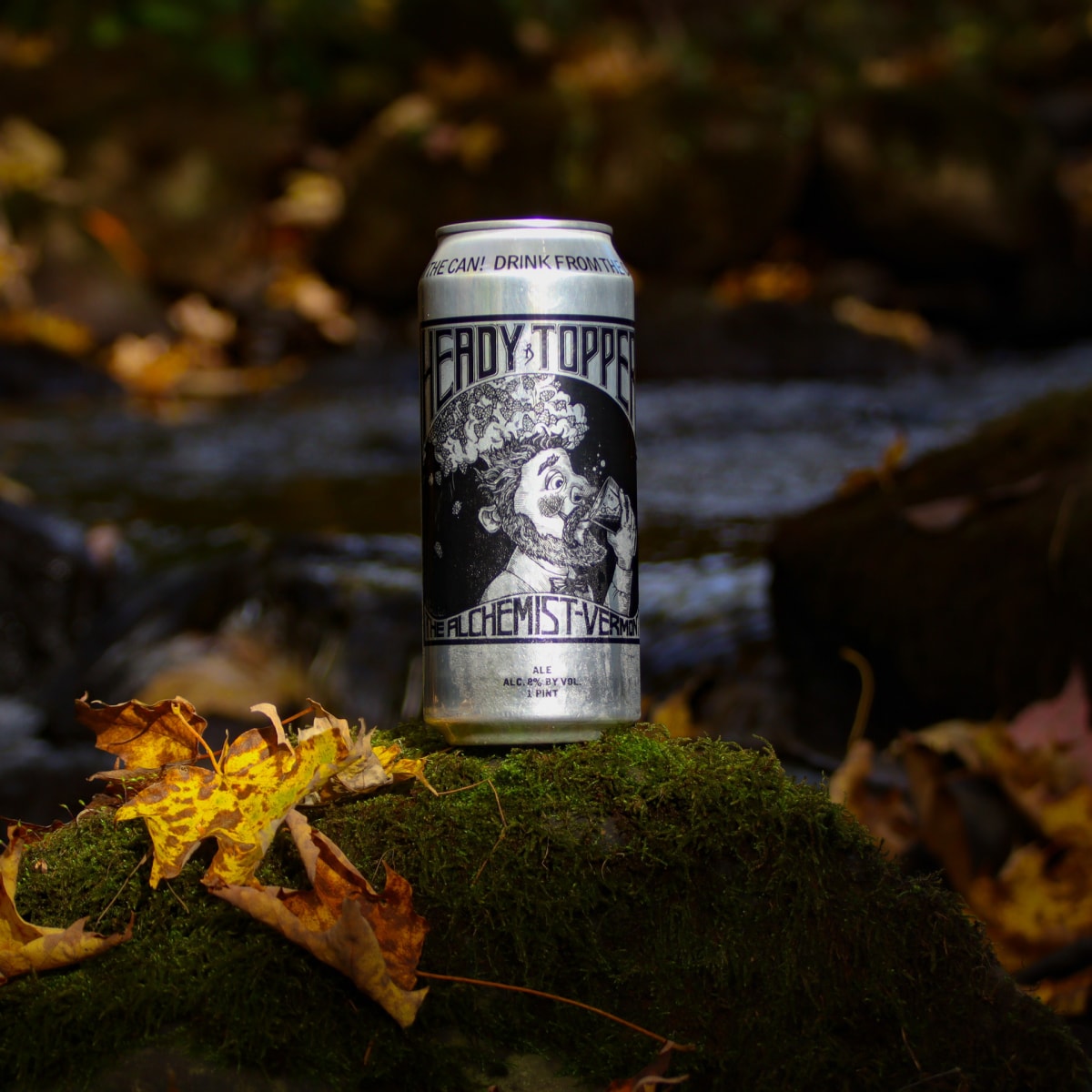
[Photo: courtesy Alchemist Beer]
Consistently rated one of the best IPAs in the world, Heady Topper is produced in limited supplies, triggering a demand that sustains the brew’s cult status. Jen recalls a request from the Games of Throne’s production team. “The cast was having a debate about the best beer in the world, and the writers, who are American, are fans. So, we sent them some Heady Topper and lucky for us, we got to visit the production sets in Belfast.”
But as much as the Alchemist Brewery story is about making highly personal world-class beer, it’s also about creating a highly personal world-class business: a modern values-led company, representing slow and steady growth over two decades, every step taken without investors.
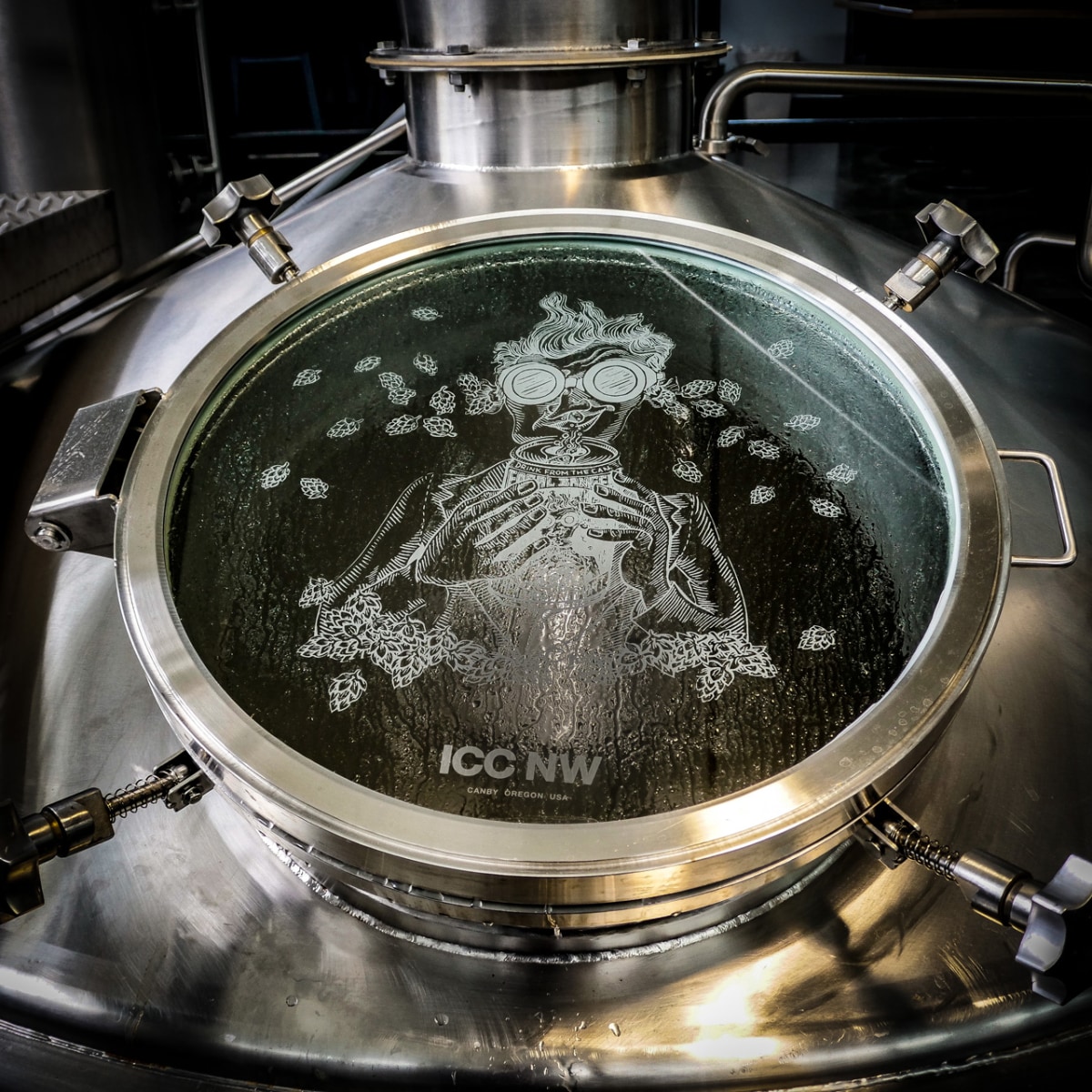
[Photo: courtesy Alchemist Beer]
Disaster strikes
In 2003, the husband-and-wife team used salvaged equipment, a $110,000 bank loan, and maxed-out credit cards to open their original 60-seat, 7-barrel brewpub in Waterbury. Without a canning line (the mechanical packaging system that prepares, pressurizes, and protects the beer’s transfer to individual cans, making distribution and off-premises sales possible), the only way to get Heady Topper for the next eight years was at the pub—by the glass. It wasn’t unusual for people to transfer the beer into their own take-home containers on the stealth, and line up to buy more.
The next step came in 2011 with a production-only brewery and cannery built with a $350,000 loan augmented with pub income. But on the day before the first cans rolled off the line, Tropical Storm Irene hit Waterbury, raising the Winooski River to more than 10 feet above its flood stage, devastating the brewpub. It never reopened.
“Having put all our money into the new brewery, we were broke again,” Jen says. “But people were now going crazy for Heady Topper, so we kept increasing production, putting profits back into more tanks, until we got to 9000 barrels annually in 2012, which we are still at today, and started a small local distribution company with a few drivers and a refrigerated truck.”
By 2013, Alchemist was grossing over $10 million annually, with production not even close to meeting local demand, and the couple began planning a state-of-the art expansion in Stowe: the reestablishment of a public space with the opening of Alchemist Brewery with Café and Beer Garden, including a Visitors Center and daily tours, funded by profits and a $12 million bank loan. “This was a huge jump in loan size for us. But the expansion came at the height of the unfiltered IPA craze, which we are credited for spearheading, and banks were swarming us,” says Jen.
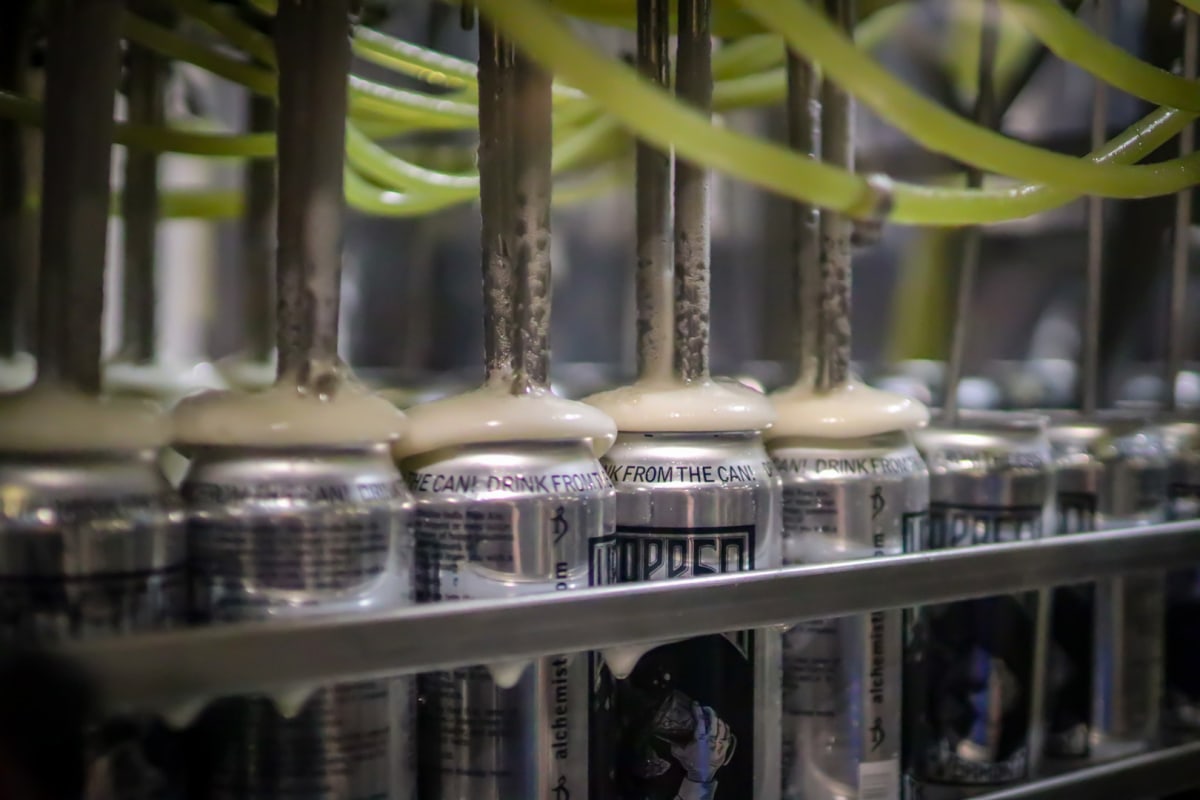
[Photo: courtesy Alchemist Beer]
By commiting to self-financing, Jen and John preserve their sense of agency in navigating obstacles and approaching opportunities, giving leeway to shape a self-determined work world for themselves and their employees, including fully paid health premiums, sick leave, and parental leave for both parents, plus a Pre-K childcare stipend to offset childcare costs, and 401(k) matching programs. In addition, there are wellness programs and kitchens stocked with organic food. “No one has to stress if they didn’t make lunch,” Jen says. “Our employees are happy. Our employees are healthy. And we have little turnover.” In addition, 12%-plus of the Alchemist crew work with physical or intellectual disabilities, noted with an award for Alchemist’s progressive outreach and imaginative work assignments reflecting the spirit of the Americans with Disabilities Act from The Vermont Governor’s Committee on the Employment of People with Disabilities.
Working exclusively with banks and self-reliant funding also means they can freely determine how to best contribute to their community. “We make enough money to fund our mission-driven ideas—what we believe in for the good of the PGM [People of Global Majority],” Jen says. “You know, we love beer, but it’s the power of our beer that is most exciting and keeps us engaged. Not having stockholders or investors lets us do what we want—or not want—to do.”
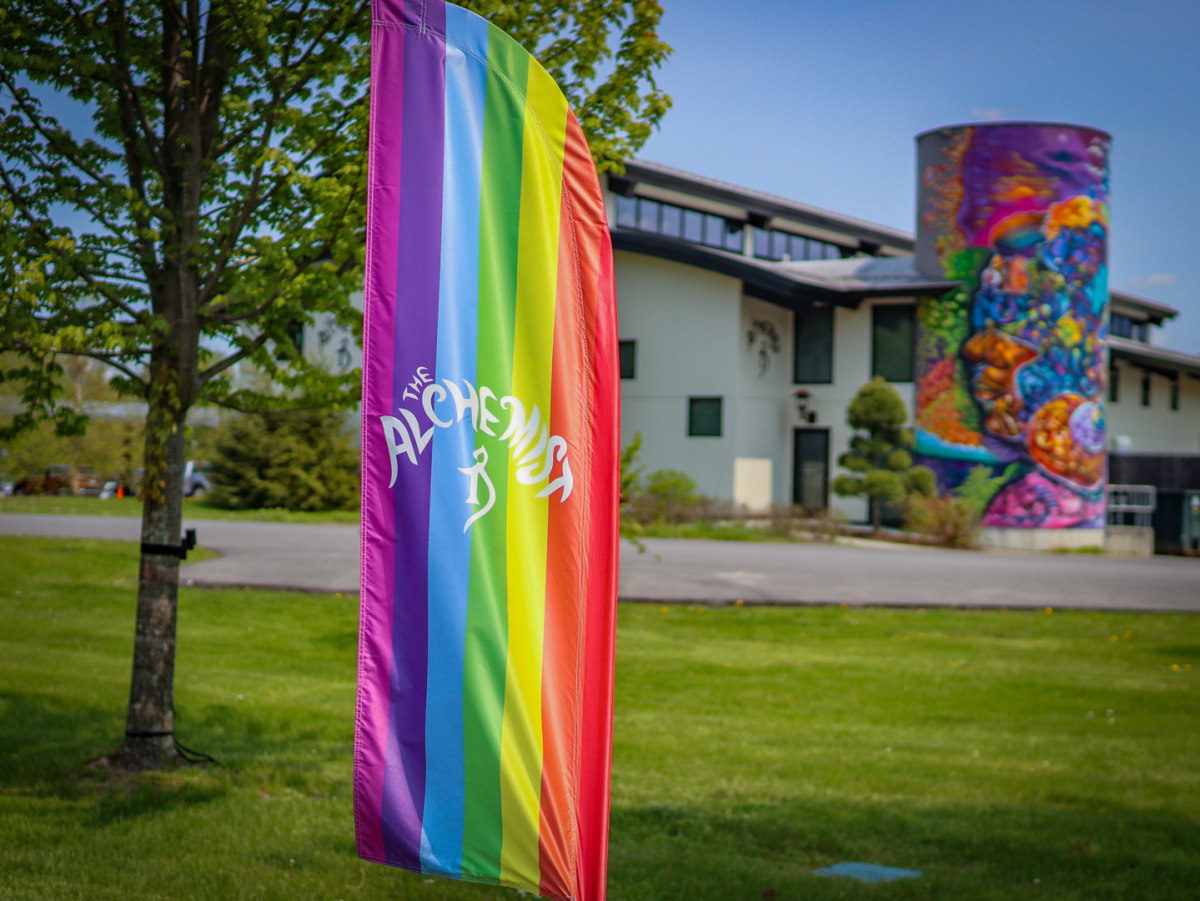
[Photo: courtesy Alchemist Beer]
Just say gay
In May 2023, the same month Florida Governor Ron DeSantis further expanded his “Don’t Say Gay” law into the educational system, Alchemist Brewery released the low-alcohol American IPA, “Just Say Gay,” in a rainbow patterned silver can, printed with a message collaboratively composed and supported by the cofounders and their staff: When people in power make laws to specifically dehumanize other people, we need to stand up. “Shared values, especially the importance of civil liberties, are the backbone to our team and collective efforts,” says Jen.
The beer was brewed several times, always in a small, specialty batch—15 barrels at a time, and always quickly sold out—available only on-premise, except for a batch specifically brewed for Provincetown Family week. “Ten percent of sales were donated to the local Pride Center of Vermont,” Jen says. “But it is the messaging and resource-sharing that is so important to us. The can QR link to our website brings you to a whole bunch of resources for combating anti-LGBTQ+ legislation.”
Despite the potential blowback of taking a bold stance, the couple sought no counsel for their idea—not from attorneys or employees. They’ve never consulted a marketing company at any point in their business history either.
“We wanted to show our solidarity with the LGBTQ+ community, especially our youth, and the tagline ‘Just Say Gay’ came while John and I were on a hike,” says Jen. “By the end of the hike, we had a plan in place. We knew we would tick off some people. But we didn’t care. Our customers know us and what we stand for.”
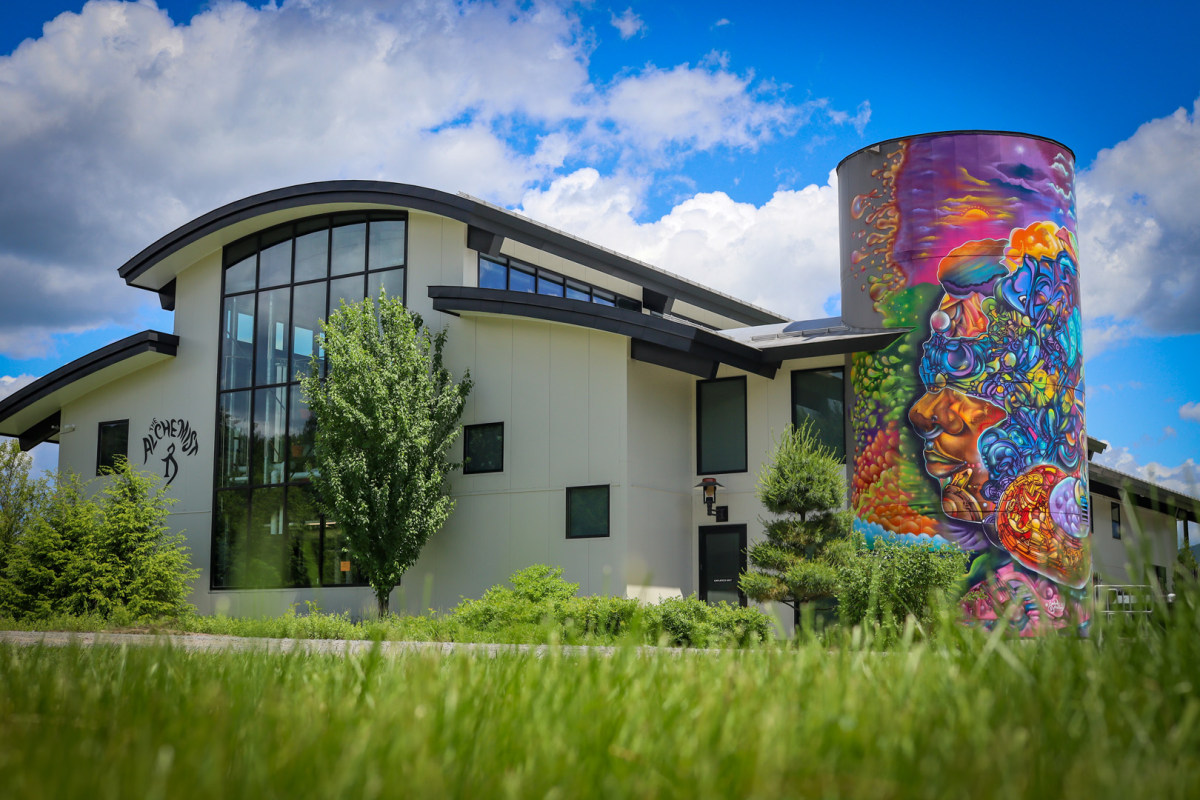
[Photo: courtesy Alchemist Beer]
As a certified B Corporation, Alchemist Brewery has created The Alchemist Foundation, a place-based educational giving program for high school graduates from the same area that their employees call home—the town of Warren in Washington County, stretching north to Eden in Lamoille County along Route 100, Vermont’s longest numbered route and most scenic highway—as well as local and statewide technical schools. The fund includes multiyear renewable scholarships for training and education after high school, as well as a new cash award for graduates who are not going on to a formal post-secondary program: The Ready Alchemist Foundation (or Ready AF) Awards aim to make it possible for every local graduate to get the skills and training they need for a successful career in Vermont.
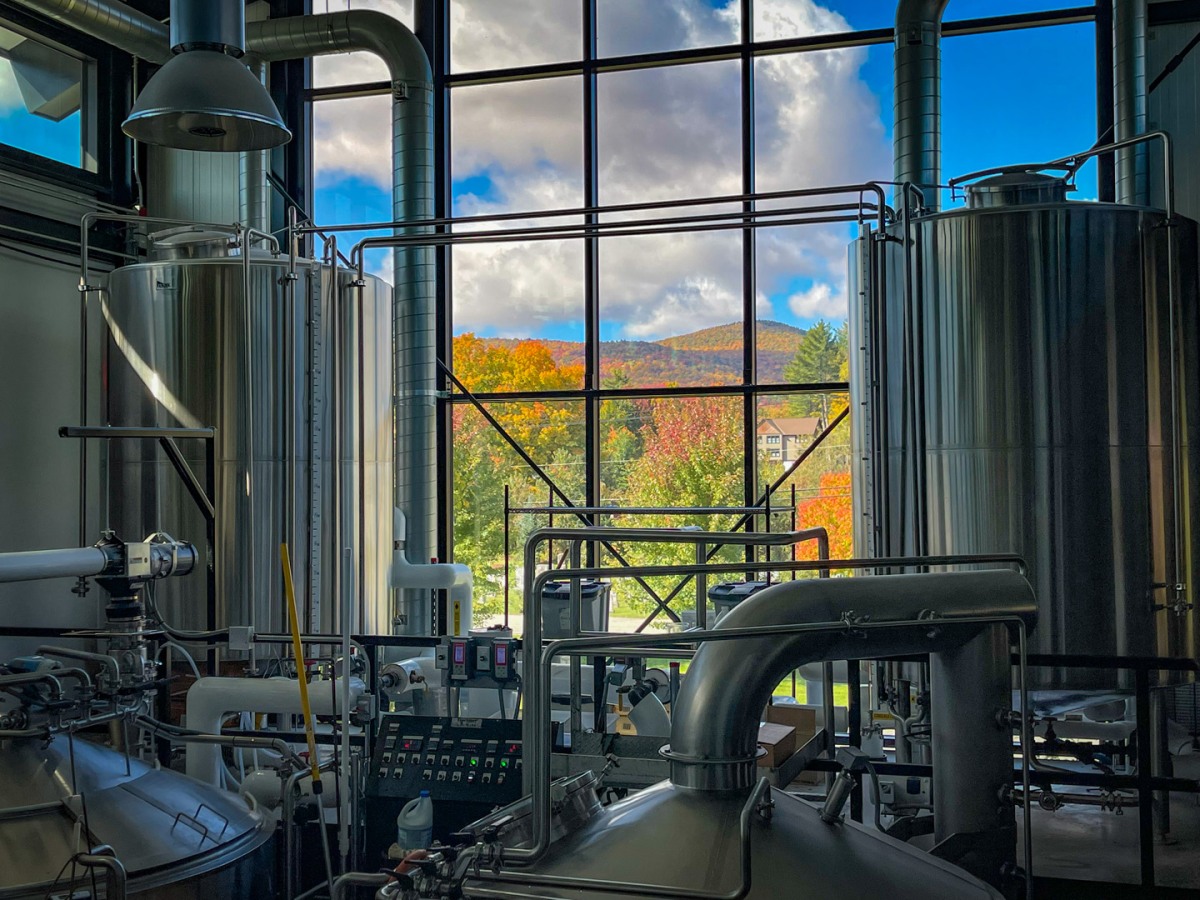
[Photo: courtesy Alchemist Beer]
Most significant, by self-funding Jen and John bought Alchemist Brewery’s greatest freedom: production autonomy, which despite their success, keeps their business an artisanally spirited enterprise rather than an industrial one. They make a rotating selection of other beers in varied styles with an annual production of 18,000 barrels, filling 5.8 million cans in total per year. Of that total, Heady Topper remains at 9,000 barrels or 2.9 million cans, a number that has not increased since 2012, despite the ratings and the demand.
“Why do we have to call steady and sustainable sales flat?” Jen says. “Our income goes up each year as we streamline, find efficiencies, and look for creative ways to boost on-premises sale. Plus, we have complete control over production and distribution, and never hold back inventory, so our beer is always fresh. That is why we will never get any bigger.”
[ad_2]
Source link
Leave a Reply